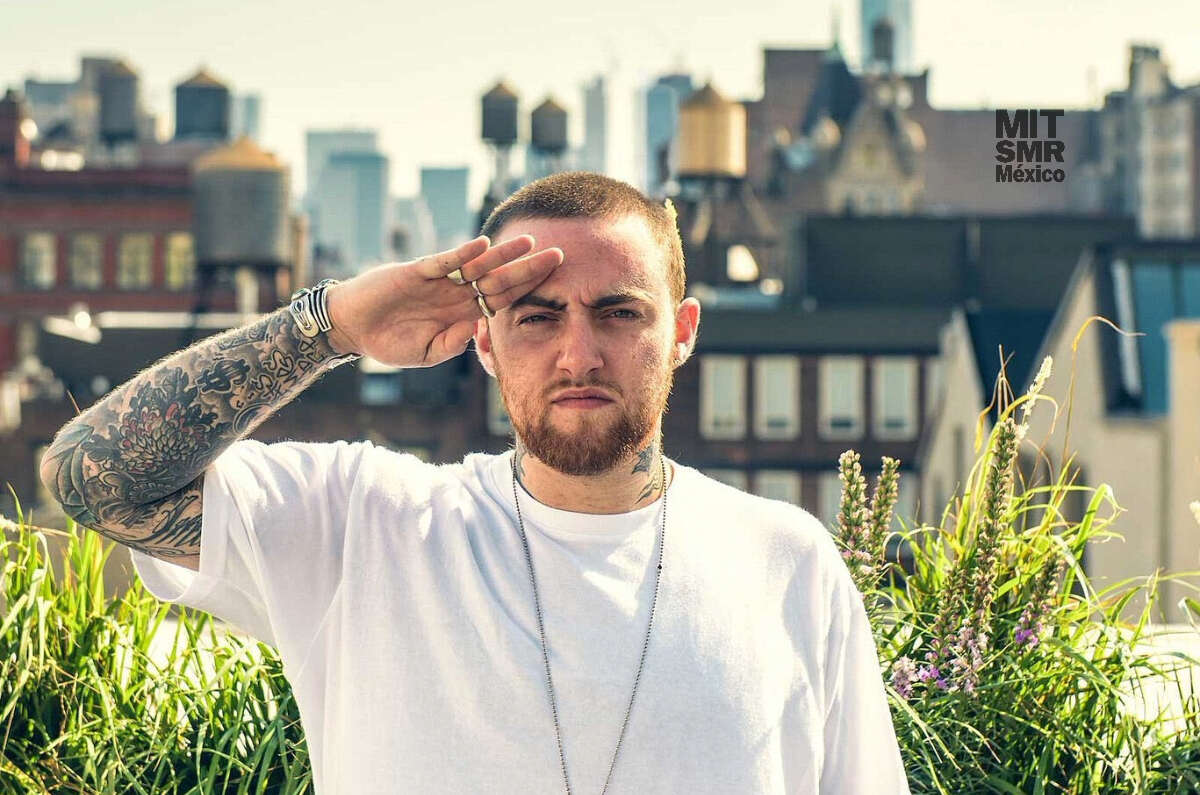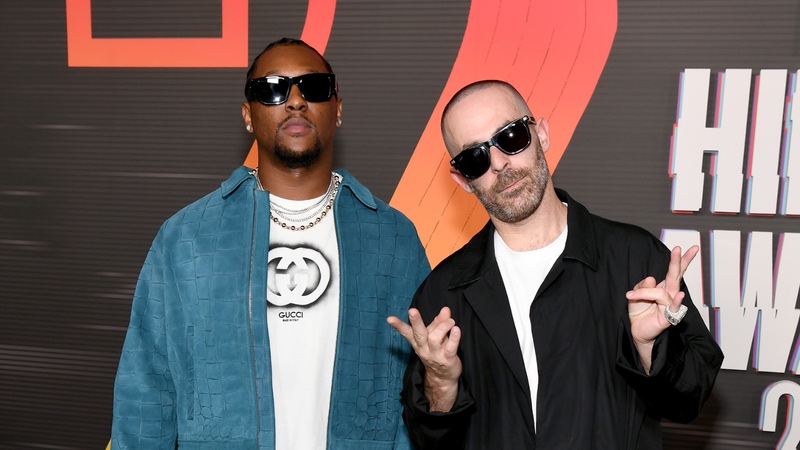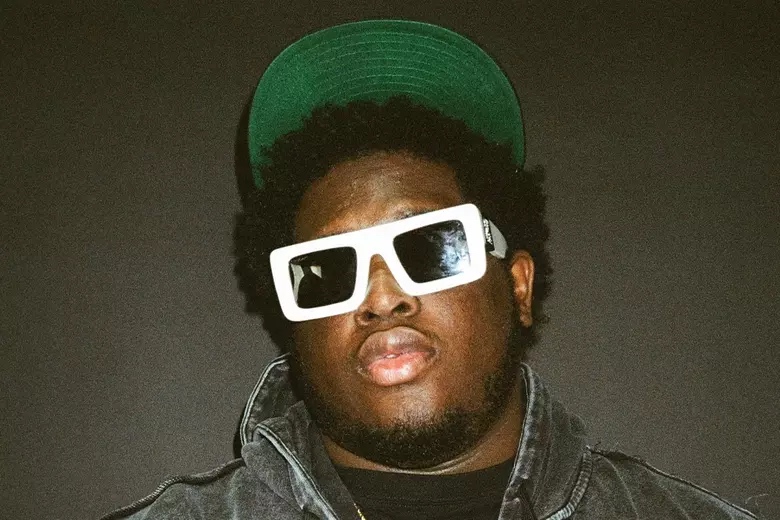On stage, David Draiman is indestructible — an incendiary frontman who bends arenas to his will through serrated screams and bellows.
But now, as Disturbed attempt to reinvent their propulsive live show once more and frame it around 20 years of The Sickness — the band’s forceful debut and most beloved album, spawning hits like “Stupify” and “Down With the Sickness” and eventually earning 5x platinum RIAA certification — their singer reflects not only on his towering career highlights, but all it’s taken to build the maniac machine. That includes his unlikely audition in a Chicago practice space, the raging summers at Ozzfest, and the clarity that a four-year hiatus brought him.
Draiman explains what it means to lead one of the most successful bands in 21st Century hard rock, the voice behind five consecutive No. 1 albums and more than 17 million LPs sold worldwide, and to be a pillar of hope and strength for so many listeners — whose fandom stretches far beyond knowing the words to all the explosive hits.
“When somebody says to you, and they mean it, ‘Your music saved my life…’ you can’t possibly imagine anything more fulfilling,” he says.
Check out our career-spanning interview with one of rock’s most commanding stars below, and bang your head to The Sickness this Saturday (March 7), when the record celebrates its 20th anniversary. (On Friday, Disturbed will also release a live version of “Hold On To Memories,” an acoustic ballad from their 2019 album, Evolution, and you can find the band on tour in the U.S. and Europe this spring and summer for a slew of sure-to-be mammoth performances.)
It’s crazy to think you found Disturbed through a magazine advertisement. What was it like auditioning for the band, as well as other groups at the time?
I was in college, at Loyola University of Chicago, and jamming with a couple of guys. It was okay, but they had their own commitments. … I started trying to, instead of putting together my own thing, to complete someone else.
So I started auditioning. It must’ve been like 30, 40, 50 auditions. It was a lot. A bunch of them were interested in working with me, but I just didn’t see anything standing out with them. These guys would just learn a whole bunch of covers. I wasn’t really interested in becoming part of a cover band. I wanted to do original material, I wanted to write original material — and a lot of these guys would be able to do covers really well, but the minute that they pulled out a piece of original material, it wasn’t worth the time of day.
Disturbed was a nice little breath of fresh air. I saw the ad that Danny (Donegan, guitarist) and the guys had put out in the Illinois Entertainer (magazine). They were bragging that they had their own studio time already, and a deal in the works, and made it sound a lot closer to being already established and signed than they actually were.
They were smart about what they did have, though, and that impressed me. What was most impressive was walking in the door, we couldn’t have been more different from each other. I walked in, I was a total Loyola college student, North side stoner mode: jean shorts, a white T-shirt, and sandals. These guys had on — I mean, they looked like Skid Row, with the flannel open to their belly buttons, the frayed jeans, acid-washed, and the Converse with the tongue thing out. I mean, the whole look.
We looked at each other very wearily. They were used to doing the usual spiel, “What covers do you know?” I said, “I know all kinds of covers, but with all due respect guys, I didn’t think you guys were a cover band — can we try and jam something together?” They said “We need to play something that we all know.” I’m like, “Well, you have original material, right? Well, then why don’t you just play it, and let me just try something.” They didn’t really know how to react to it — nobody had ever asked them to do that. I’m like, “Don’t worry, I’ll come up with something. Just give me a couple of minutes and let me hear what you guys have.”
They started playing a piece of music, and it really was just heavy and rhythmic, it instantly grabbed me. I took a couple of minutes, and I figured out a melody that was appropriate, and a cadence that was appropriate — and I had a lyric that I had written for another song that I could kind of use for it. And a song that nobody expected to happen happened that day. We wrote the very first song during our very first time auditioning with one another, and that was “Want,” one of the songs on The Sickness.
Once you guys began to write The Sickness in earnest, did the chemistry remain as palpable?
It really did. I mean, it wasn’t always a couple of minutes, but the chemistry was very, very tangible and very, very blatant. We really enjoyed learning from one another, and influencing one another. The bands that I had been in previously to Disturbed were more funk-oriented. They were more like Faith No More and Red Hot] Chili Peppers type of vibe. They weren’t quite so heavy.
What I brought in, with a lot of what I had done in the past, was that rhythmic sensibility, that rhythmic delivery of the vocal. Since what those guys were coming up with was so rhythmic and groove-heavy to begin with, it just lent itself. The more we kept working with each other, and the more we kept writing together, the more that my style and their style would kind of blend together, and influence how we would write with one another.
Which song was most challenging to get on record?
Well, I remember “Down With the Sickness” itself, the way that we wanted to do it was a challenge, both from the label, from our producer Johnny K, because of that little rap section.Neither one of them got it. I’m like, “You don’t have to get it. It’s okay. Listeners] are going to get it. It’s just a display of emotion. It’s raw.” They wanted us to edit it out of the song, and truth be told, the radio ended up editing it out anyway. The album version is the album version, and that’s version we play live every time we play it, and that’s the one that the fans know and love — “Mommy, don’t do it again. I promise,” they scream along with it.
The tragic part is just how that little section ends up making my poor, sweet mother feel. It’s not like my mom actually beat the hell out of me when I was a kid. The whole thing is an analogy, and a lot of people have used it as a direct interpretation for their own cathartic purposes, and so be it. I love that, but it’s not what I wrote it as.
Long before headlining amphitheater shows, Disturbed was an Ozzfest band. What are your memories of playing such immense festivals as a young band?
Oh man, those were formative years for sure. That’s where we earned our badges, I guess you could say, or learned the ways of The Force. It was a training ground for young hard rock and metal bands, and the proving ground — and a catapult of sorts, a launching pad, it really was. I mean, it can’t be understated, the significance of what Ozzfest contributed to the hard rock and metal community. It was amazing. It was this metal summer camp for all of us.
Which band left the biggest impact?
Pantera. I don’t even need to think twice. I mean, between watching them play and watching them party, the boys from Pantera taught us everything we needed to know.
Dating back to The Sickness, you’ve used spiritual and theological elements to fuel your lyrical narratives. What role does faith play in your life now, not only as a musician but as a husband and father?
Not much. I’m a spiritual guy, but I’m not a religious guy. I believe in a higher power. I believe in a balance — and I believe in the whole concept of a first mover, if we’re talking philosophically — but I’m not a religious person. I don’t really observe a whole lot. I want my son to just have an appreciation of the heritage of both sides of his background. It doesn’t really play a whole, a tremendous part. I think that finding that own personal balance is a challenge for everyone. If religion ends up enabling you to achieve that balance, then more power to you.
You’re certainly one of rock’s most studied frontmen — you were a triple major at Loyola (business administration, philosophy and political science) before joining Disturbed. How do you still keep your mind sharp?
I read a ton, almost too much. It’s constant. It’s not novels or anything like that, it’s always information, it’s always a periodical, data, and news. It encompasses more of my day than I care to admit.
Any guilty pleasures — bad TV, things that aren’t particularly intellectual?
Not really. Everything I sink my teeth into has some sort of pseudo-intellectual side to it. For instance, me and the wife just plowed through The Witcher. Now, you can say it’s a dumb entertainment to a certain extent, but not really. There’s intricacies involved there. There’s decent plots going on. I guess that’s about as close to the guilty pleasures as I get.
What can you say about The Sickness anniversary tour coming up? Will you be playing the album straight through?
No, we won’t do the entire album, but we’re going to do a ton of Sickness material, deeper cuts, stuff people haven’t heard us play off the record for a while, and definitely a huge portion of material will be Sickness-oriented.
You can’t, unfortunately — or fortunately, depending on how you look at it — as a band at our level, at this point of our career, you can’t just go out and play one record because everybody came on board at different stations. They want to hear what they fell in love with. There’s definitely new production elements that we’re toying with, that are elements that we’ve maybe used during The Sickness era, but that we’re doing in a new and more provocative way. That’s about all I can say.
During last year’s arena tour, one of the most poignant moments in the set was when you prefaced your new song, “A Reason to Fight,” with a conversation about mental health and the loss of many of your hard-rock contemporaries — Chris Cornell and Chester Bennington among them — to the disease. I’d imagine you have fans reaching out now about their own struggles?
Constantly. It’s almost overwhelming, to be honest. Once you start realizing just how much weight your words, or your music, or even the way people think about you carries, it’s very intimidating. I sometimes don’t know quite how to handle aspects of it, because it’s a lot. Knowing that you’ve been able to touch so many people, but at the same time, to have that level of connection and dependence. People become so tied to music and they become so passionate about it.
When somebody says to you, and they mean it — “your music saved my life” — it’s on one hand, you can’t possibly imagine for anything more fulfilling. And on the other hand, it kicks you in the gut, too. It’s like, “Oh my god, what happened to you? I’m so glad that it helps,” but it’s a constant reality check of sorts, of how many people suffer from this kind of thing. It’s incredibly fulfilling knowing that you can have this massive group therapy session for 10,000 or 15,000 people in a stadium or an arena. It’s an incredible thing.
On the other end of the spectrum, can you describe what it’s like to have those 15,000 people in the palm of your hands, participating in the epic call-and-response to “Ten Thousand Fists” or “Stupify”?
Oh, there’s nothing in the world like it, brother. I’ve said this before, it doesn’t compare to any pleasurable experience in creation. It really doesn’t. You can’t accurately describe it. You can’t accurately relay what it feels like to anybody, because unless you felt that yourself, it’s impossible to know. All of that energy channeled into one person from thousands is incredible. Then, you’ve been given the gift of being able to focus that energy and projected back out to them. That constant circle, that symbiotic relationship that just keeps going. It’s amazing. It’s incredibly powerful and intoxicating as f–k.
So much Disturbed’s ferocity comes from the aggression with which you sing, and your voice has held up remarkably well. What’s your maintenance routine on tour?
It’s intensive, laborious, and all-encompassing. When I get ready to go on the road, I’m a monk. I don’t drink, I don’t smoke, I can’t eat three to four hours prior to performance. I can’t eat two to three hours prior to going to bed. I have to watch my diet because I have acid reflux disease. I have to take medication for it. The techniques that are involved to go from slow to fast, and hard to soft, and smooth to rough as often and as quickly as I do are difficult ones to master. No matter how much practice you have, every once in a while you’ll f–k up. You’ve got to watch yourself.
For every singer … I shouldn’t say everyone, there are people like] the Rob Halfords of the world — and the Ronnie James Dios, may he rest in peace — who are literally bulletproof, and can smoke, and drink, and get up on stage, and they’re fine. I’m not one of those guys. Most guys aren’t one of those guys. The discipline is definitely required. I’m not the guy who can go out and party after the show. I’ve got to get my sleep. I’ve got to be a responsible adult to maintain. Otherwise my body reminds me who’s boss pretty quick.
This being a round-year anniversary of your most famous album, have you taken any time to reflect and think, “OK, it’s been 20 years, we’ve had five No. 1 albums, we’re by many measures one of the most successful rock bands of the century.” Or is it still full steam ahead?
I really try not to think about it]. I think we just try to keep on heading up that gradual upward climb, and that’s what it has been for us — thankfully, our entire career is a gradual upward climb. While we still want to be meticulous, and we want to plan everything, we want to enjoy it as it’s happening, and not overthink it either. It’s all about finding that balance.
So during the band’s hiatus, from 2011 to 2015, there was never any doubt that the Disturbed would reform?
Never. It’s too unique when you finally run into the people that you truly were meant to create with, and you can’t get second guess that, and you can’t undervalue what that means. It’s huge. Don’t get me wrong, we all had a lot of enjoyment and fulfillment working with some other musicians and spreading our wings. I was beyond flattered and honored to work with all the amazing musicians I got the opportunity to work with. But it’s really, really hard to build any new baby band from scratch.
We got to learn that the hard way, even with our legacy and our pedigree. You kind of get to a point where you’re at a certain age, and you’re spending X number of dollars, and you’re like, “Why exactly am I chasing this when I have the other big machine, which I spent so much blood, sweat, tears, and years of my life building anyway?” Sometimes you’ve got to leave something to realize how much you appreciate it, right? Well, we did that and we appreciate Disturbed].



